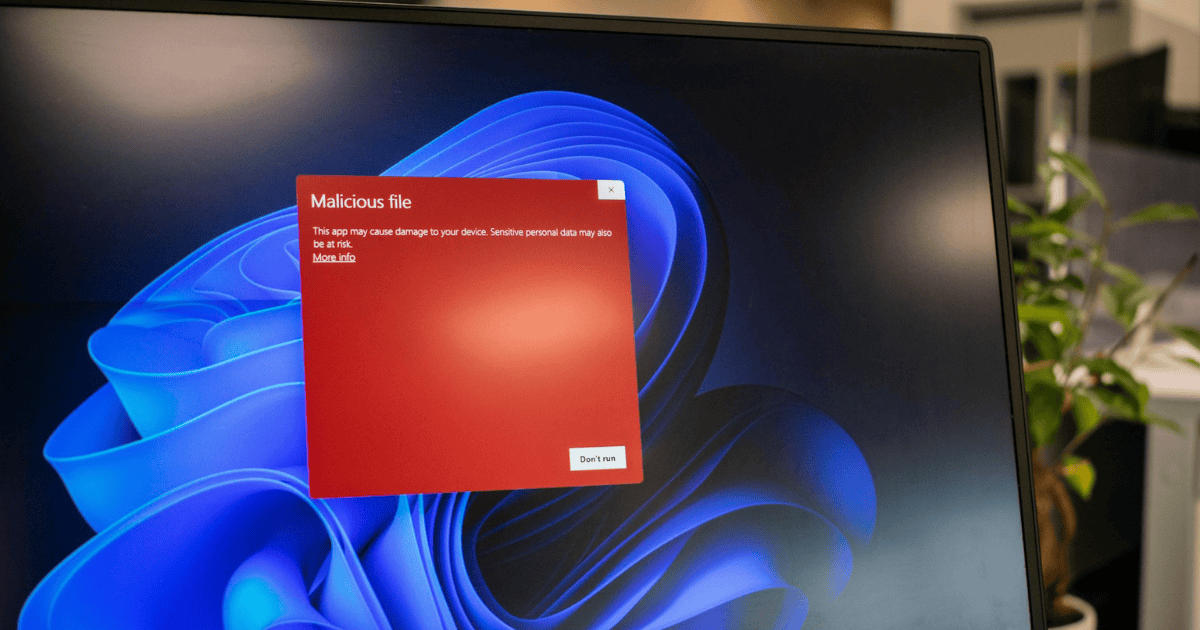Last Updated on 8 June 2023 by admin
Table of Contents
In today’s ever-evolving threat landscape, both the mitigation and fending off of cyber threats are becoming increasingly challenging. With attacks frequently making front-page news, it’s no longer a question of if but when an organization might be targeted.
A heavier reliance on new technologies and IoT for business operations has exposed us to an infinite number of cyber threats. In addition, the ongoing Covid-19 pandemic has given rise to increased levels of remote working further increasing dependence on digital infrastructure and systems. A growing attack surface leaves many businesses exposed and vulnerable by not adopting the appropriate security measures – no matter their size.
We’ve detailed the 7 biggest cyber threats for small businesses, providing a comprehensive guide to understanding what the most common threats for a small business are and the serious impact cyber-attacks can have on the long-term security of small business owners.
Security risks that render small businesses vulnerable to cyber attacks
Over the past few years, cyber attackers have increasingly proven themselves incredibly entrepreneurial, and they clearly don’t discriminate against business size. Small businesses are often considered easy targets as they tend to have less robust cyber security, so attackers continue to exploit this lucrative situation. Investing in more reliable network security is a small, but significant step towards mitigating dangerous cyber attacks.
The National Cyber Security Alliance stated that annually, 20% of small businesses are successfully targeted – and 60% of those attacked have to close their doors within 6 months of the attack. So, it is critical to be aware of your specific weak spots and how to successfully mitigate them quickly and effectively. Below we have outlined where some common weaknesses lie.
Antivirus software only offers limited protection. With issues like malicious code insertion by experienced hackers, there are other precautions that small businesses need to take in order to protect themselves from cyber-attacks. So, it is critical to be aware of your specific weak spots and how to successfully mitigate them quickly and effectively.
Below we have outlined where some common weaknesses lie.
Not enough funding and resources for cyber security
A lack of financial means to implement an effective and robust security policy is one of the primary downfalls of smaller businesses, against cyber attacks. Without sufficient funding, they are not likely to be as well-equipped as they should be to confront and combat new and changing cyber risks. Financial drawbacks could also mean that if a smaller business were to be targeted successfully, they are less likely to recover from it, as remediation can be costly.
Another related issue is that it could be a case of not knowing the best way to invest in your cyber security. Thankfully, in today’s market there are many affordable security solutions that will protect your most sensitive data.
Check out our insightful blog to find out how to spend your security budget wisely.
Unprepared for growth
Although growth is usually considered simply a positive thing in business there are some inescapable by-products that aren’t as desirable. As a business’s digital footprint increases, so must its security – this will help guarantee that capacity problems don’t hinder responses to security incidents. In other words, as your business grows, your attack surface grows too. And as your attack surface grows, you will inevitably have more gaps in your infrastructure (or opportunities) for a threat actor to gain unauthorized access to your online environment. Therefore, scalable security solutions, such as attack surface management, are becoming increasingly popular with organizations of all sizes.
Lack of security awareness and training
Investing in your team’s cyber security knowledge should be a non-negotiable factor in any security management plan. End-users must be equipped with the right level of security awareness in order to securely handle sensitive data and operate safely. Management must ensure that staff is conscious of what exactly the risks are that they face, and specifically what’s at stake. With the right tools and mindset, employees should be able to identify, prevent, and respond to security concerns appropriately. Invoking a security-first culture is critical in the current threat climate, and should be easily reinforced with multiple cyber attacks frequenting the news.
By way of example, one of the most common mistakes small businesses make is using the same passwords for every one of their accounts. If that password becomes exposed, your whole operation will be in jeopardy. There are several steps to take that will remedy this vulnerability:
1- Use strong passwords.
2- Consider using a corporate network.
3- If you must use a public wi-fi connection, use a virtual private network
4- Set up a multi-factor authentication system for every account.
Identifying phishing attacks
Phishing attacks are the most dominant cyber threat that smaller businesses face today, accounting for approximately 90% of all data breaches. They are a simple yet effective form of a social engineering attack in which hackers attempt to dupe victims into actions from which they can benefit. Most often, hackers try to access user information and bank details. When a phishing attack is successful, they are highly disruptive and the costs (both economic and reputational) can be permanent, so the substantial rise in cases over the last twelve months is unquestionably a cause of concern.
Hackers continue to adopt various methods of attack, but business email compromise (BEC) is a form of social engineering scam that is one of the most financially detrimental cybercrimes today. The worldwide surge in BEC cases on businesses large and small shows its pervasiveness, making it a universal pain-point for many. BEC – a type of phishing attempt – is becoming increasingly favored by cybercriminals due to its efficiency and profitability. So, it is crucial to be more vigilant than ever to protect your business.
Defending against malware attacks
Malware is a type of malicious software that is designed to cause damage to a computer, server, client, or computer network. In fact, malware is the second largest threat to small businesses. Malware attacks include viruses, Trojan horses, and spyware. Being able to identify and appropriately handle this kind of attack is key.
The rise of ransomware attacks
Ransomware is a serious problem that affects businesses of all sizes. After malicious software takes over your computer or network, malicious actors then threaten to publish the victim’s data or block access unless a ransom is paid to recover it. To put it bluntly, if you have a website, web application, computer system, or network, you’re at risk. A preventive method to avoid falling victim to such attacks is to routinely back up files onto an external server, so if an attack is successful you can then restore your data.
Mitigating human error
Human error is one of the most prominent threats that businesses face today, and absolutely anyone can have lapses of judgment, no matter their experience level. Some key examples of these cyber threats are the misuse of devices, failure to identify a potential threat, and misconfigurations. In fact, the human attack surface is often described as the weakest link in cyber security.
With a smaller business, employees might not have a sound level of security knowledge yet, or simply might not be tech-savvy. This inevitably leaves room for mistakes to be made. So, educating employees and promoting cyber awareness is crucial.
Final thoughts
Small businesses are faced with an abundance of cyber threats, but instilling and enforcing a comprehensive security strategy is a reliable solution to support their longevity and prosperity. Stay tuned for part two, where we will explore how small businesses can effectively combat their specific cyber risks by implementing proactive security practices.
Informer offers a continuous cyber security monitoring solution that empowers businesses of all sizes to gain control of their attack surface with full visibility of their evolving threat landscape. To find out more about how our innovative SaaS solution can solve your security concerns, get in touch today.





